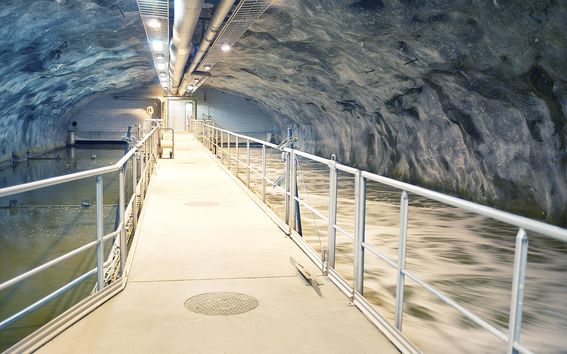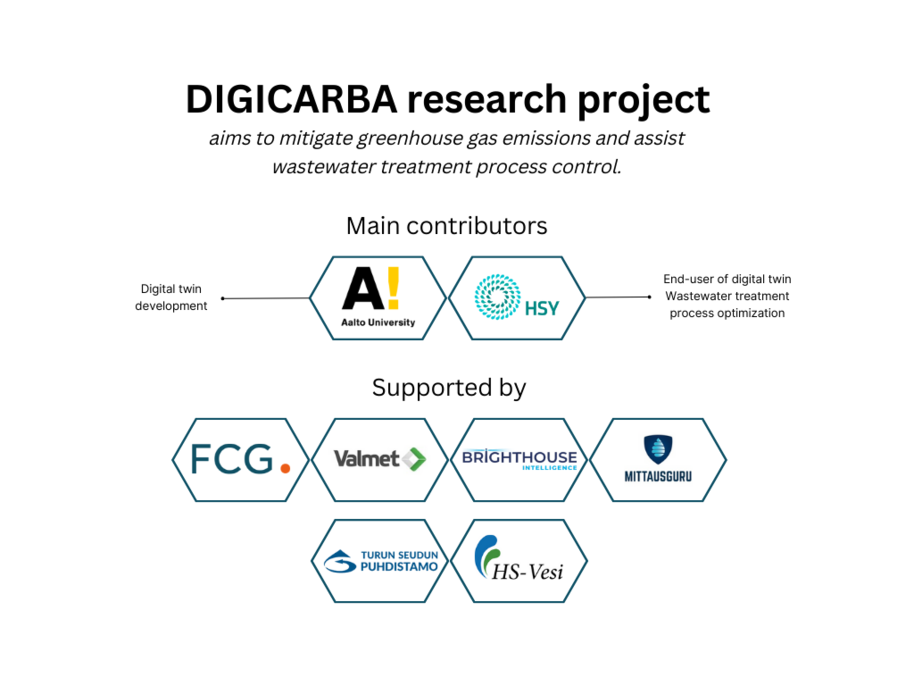Digital twin for optimizing the carbon balance in wastewater treatment

Energy consumption reduction and greenhouse gas emissions mitigation are one of the top priorities at many wastewater treatment plants regarding upcoming tightening changes in legislation. Some water pollutants removal, especially nitrogen, requires energy-intensive aeration and a comprehensive operation to minimize the formation of highly intensive greenhouse gas (GHG) – nitrous oxide emitted by the biological nitrogen removal process. While wastewater treatment operation performed by water utility already meets current requirements established by the EU Commission, new techniques and approaches to implementation are required to mitigate energy consumption and greenhouse gas emissions.
Studies on GHG emissions hotspots and process control have been performed within the collaboration of Aalto University Water and Environmental Engineering researchers and Helsinki Region Environmental Services Authority HSY. Based on this collaboration, a new project, DIGICARBA, was started in 2023 to create a digital treatment plant tool to help wastewater treatment operators in process control and optimization.

‘The proposed digital tool will have a wastewater treatment process model connected to continuous data transmission from the Helsinki wastewater treatment plant to produce predictive simulations. In this case, operators will be able to see the impact of different treatment process changes and decide on the most suitable one with the lowest carbon footprint, energy consumption, and best effluent quality. Also, the developed tool can be used for new operators’ training’, tells Ksenija Golovko, a doctoral researcher who works with the project.
The potential digital tool could be used globally as many treatment plants will require carbon balance optimizations in the near future. Therefore, a market potential study will also be introduced to develop the technology further.
Business Finland (“Decarbonized Cities” program) is funding the DIGICARBA project until the end of 2025. The project will be supported by collaboration with Helsinki Region Environmental Services Authority HSY, FCG Finnish Consulting Group Oy, Valmet Oyj, Brighthouse Intelligence Oy, and Mittausguru Oy. The Water and Environmental Engineering Research group will be involved from the Aalto University side, offering Master’s students an opportunity to participate in the project for the thesis work and helping to promote wastewater treatment plants’ path to carbon neutrality. The calls for Master’s thesis positions will be announced later on Aalto University website and DIGICARBA LinkedIn page.
More information
Read more news

Aalto University is introducing ORCID’s Researcher Connect service
Aalto University is introducing ORCID's Researcher Connect service, which facilitates information transfer between researchers' ORCID profiles and the university's research information management system, ACRIS.
Nature of Process: Exhibition by the students of the ‘Personal Exploration’ Course
Nature of Process is a multi-material exhibition of 14 Master´s students of Aalto ARTSEden Telila's master's thesis contributed to Ramboll's geotechnical toolkit
Geoengineering alum Eden Telila helped Ramboll automate manual tasks.






